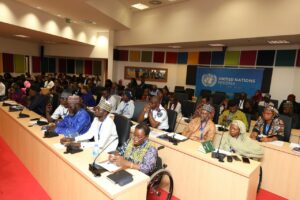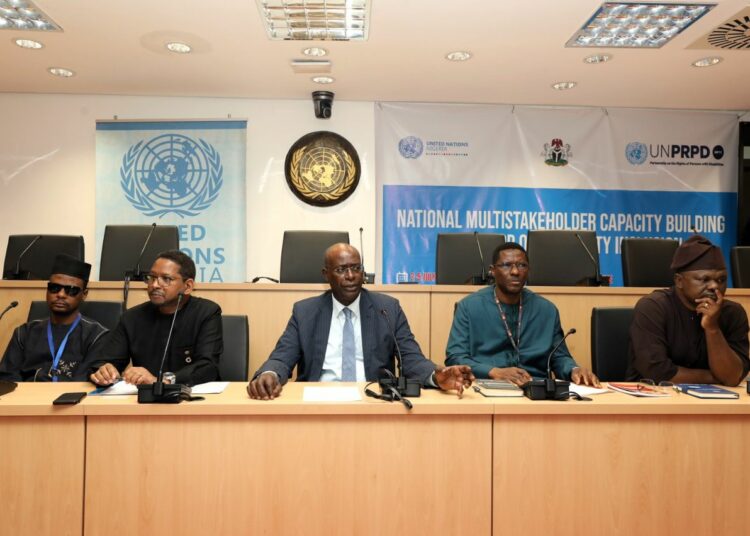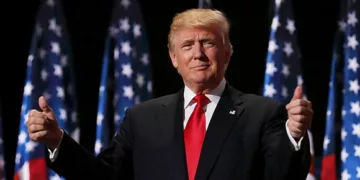The United Nations (UN) Resident Coordinator in Nigeria, Mohammed Fall, has emphasised the UN’s relentless commitment to entrenching a society that is inclusive and fair, providing every individual with the opportunity to achieve their maximum potential, regardless of any obstacle.
Fall made this statement during a UN workshop on traversing Approaches and Conditions for Disability-Inclusive Development in Nigeria, which took place at the UN House in Abuja.
“The UN, as an organisation, recognises the rights and dignity of persons with disabilities, which are enshrined in the Convention on the Rights of Persons with Disabilities. We are committed to fostering an inclusive, accessible, and equitable society where every individual can realize their full potential, regardless of any physical or intellectual barriers they may face.
“The UN is committed to the complete realization of human rights for these 30 million Nigerians with disabilities, who are mostly women, children, and youth,” Fall said.

He emphasiSed that complete inclusion can only be attained through the creation of a supportive and welcoming environment for everyone, and the UN was committed to making this a reality.
“The UN building was assessed to see how accessible it is to persons with disabilities. I am happy to inform you that we have started implementing the recommendations made by the consultant who assessed the building. These efforts are crucial in creating an inclusive environment that reflects our commitment to accessibility and inclusivity.
“I rely on your support to develop innovative ideas during this workshop, which will help us provide persons with disabilities with the platform they deserve in our country. I encourage you to engage fully in this workshop and take advantage of the opportunity to network as much as possible,” he stated.
In his remarks, Abdourahamane Diallo, the UNESCO Representative in Nigeria and Chairperson of the UN Disability Interagency Group, highlighted the potential for inclusive collaboration to ensure the participation of persons with disabilities.
“In Nigeria, we have made significant strides, but there is still much work to be done. This training is a critical step in our ongoing efforts to build capacity, strengthen partnerships, and create an enabling environment for disability-inclusive development.
“It is through such collaborative initiatives that we can ensure that persons with disabilities are not only included but are also active contributors to the social, economic, and political fabric of our nation,” Diallo noted.
For his part, the UNFPA Deputy Representative and Officer in Charge of the United Nations Partnership on Rights of Persons with Disabilities (UNPRD), Mr. Francis Koessan Kuawu, called on government at all levels to demonstrate greater commitment in addressing the challenges faced by persons with disabilities.
“As a team, we are working to ensure improved access to the UN building and facilitating disability disaggregated data that would ensure more responsive programming and mainstreaming of inclusion into our respective work plans. I urge all stakeholders and OPDs present to cooperate with this journey of inclusion.
“I encourage the Government at all levels, the Legislature and the Judiciary, Traditional and religious leaders, and the 4th estate to show more commitment and work towards Disability Inclusion. There should be concerted efforts to go beyond the domestication of both the Discrimination Against Persons with Disabilities Act 2018 and the VAPP Act into law but also ensure its implementation,” he said.
Also speaking, the Executive Secretary of the National Commission for Persons with Disabilities (NCPWD), Mr. James Lalu, stressed the importance of collective efforts to tackle the challenges encountered by the disability community.
“Nigerian government will continue to do its best to ensure the challenges of disabilities are addressed,” Lalu stated.
The four-day event focused on enhancing understanding and implementation of the Convention on the Rights of Persons with Disabilities (CRPD) and its significance in shaping inclusive policies and programs.











